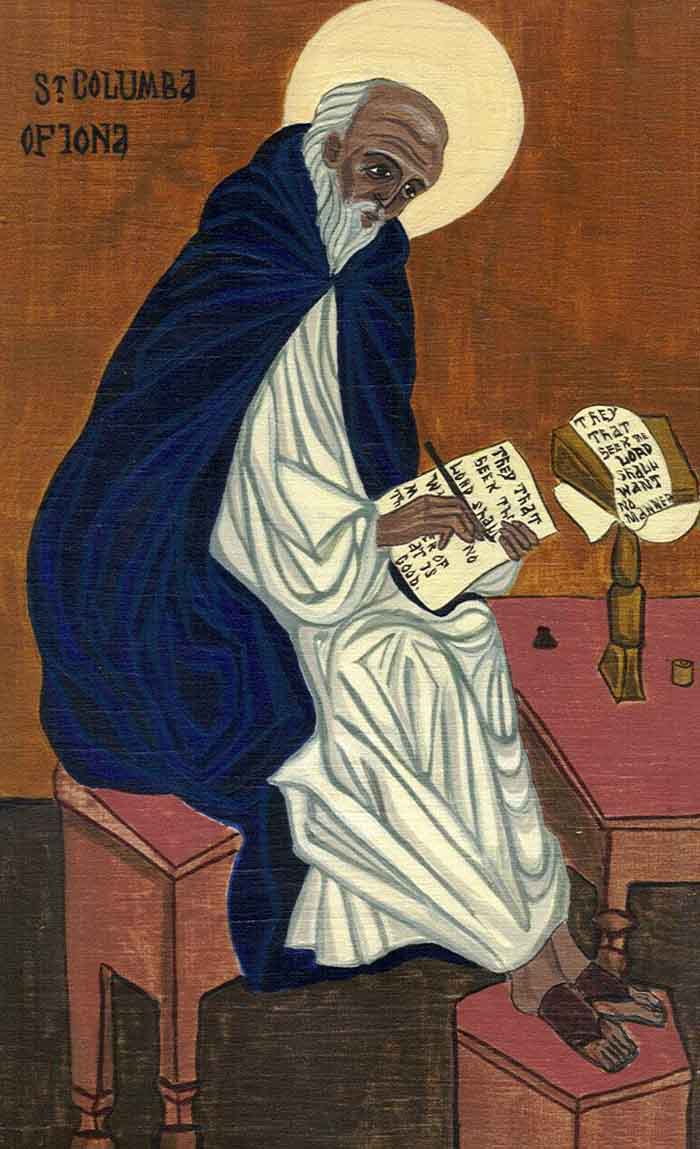as printed in a New Orleans parish leaflet ca. 1953
This Christocentric Litany for the Church is an Anglican treasure. It was never meant to be used as a devotional litany but rather was authorised by the US Episcopal Church for public recitation. It was used in church, in chapels, and in Processions. Many Anglo-Catholics in the USA pray the Rosary. All Anglicans in the USA pray litanies. In some respects, the various Litanies are for the average Anglican what the Rosary is for the average Latin Rite Catholic.
O GOD the Father, Creator of heaven and earth;
Have mercy upon us.
O God the Son, Redeemer of the world;
Have mercy upon us.
O God the Holy Ghost, Sanctifier of the faithful;
Have mercy upon us.
O + holy, blessed, and glorious Trinity, One God;
Have mercy upon us.
O CHRIST, the Rock upon which thy Church is built, whereon thy People, as living stones fitly framed together, grow into a spiritual house;
Defend thy Church, O Lord.
O Christ, the Vine of which thy People are the branches, that they may bring forth fruit an hundred-fold;
Defend thy Church, O Lord.
O Christ, the Head of thy Body, the Church, whereof all thy People are the members;
Defend thy Church, O Lord.
O Christ, our Prophet, who teaches the way of God in truth;
Defend thy Church, O Lord.
O Christ, our Priest, who didst offer up thyself upon the Cross, and ever livest to make intercession for us with the Father;
Defend thy Church, O Lord.
O Christ, our King, who reignest over all the earth, and makes us the citizens of thy heavenly Kingdom:
Defend thy Church, O Lord.
O Christ, who didst send the Holy Ghost upon the Church at Pentecost, enduing it with power from on high;
Defend thy Church, O Lord.
We do beseech thee to hear us, O Lord God; and that we may continue steadfastly in the Apostles' doctrine and fellowship, in the breaking of bread, and in the prayers;
We beseech thee to hear us, good Lord.
That we may make disciples of all nations, baptising them in the Name of the Father, and of the Son, and of the Holy Ghost;
We beseech thee to hear us, good Lord.
That thou wilt fulfil thy promise to be with us always, even unto the end of the world;
We beseech thee to hear us, good Lord.
That thou wilt bless the Clergy of thy Church, that they may diligently preach the Gospel, and faithfully administer the holy Sacraments;
We beseech thee to hear us, good Lord.
That thou wilt heal the divisions in thy Church, that we all may be one, even as thou art one with the Father;
We beseech thee to hear us, good Lord.
That every member of the Church in his vocation and ministry may truly and godly serve thee;
We beseech thee to hear us, good Lord.
¶ When this Litany is used separately the Kyries and Lord's Prayer shall follow here.
Arise, O God, maintain thine own cause;
And forget not the congregation of the poor for ever.
Look down from heaven, behold, and visit this vine;
And the branch that thou madest so strong for thyself.
Let thy priests be clothed with righteousness;
And let thy saints sing with joyfulness.
The Lord be with you;
And with thy spirit.
Let us pray.
Now unto Him who is able to do exceeding abundantly above all that we ask or think according to the power that worketh in us, unto Him + be glory in the Church and in Christ Jesus throughout all ages, world without end. Amen.
Bless we the Lord.
Thanks be to God.
—————
The Benedicamus above was a parochial addition to the Litany. There was a desire to avoid the hearing of the words being interpreted as "Lettuce bless the Lord." hence "Bless we the Lord." Similarly, the word "shed" was replaced in many prayers with "poured out" or "poured forth" because the word "shed" in some American accents sounds too much like a graphic expletive of disgust. It is easy enough to bear such things in mind although many would find "Bless we the Lord." a bit precious today (though I prefer it). Regarding the word "shed" ... once you have heard a priest say "shed" and it sounds like that other word ending in the letter "T" ... you want to be sure the word is replaced everywhere, as soon as possible, at all costs!
In the Litany printed above we see the Sign of the Cross indicated at two places that were common custom in many parts of the American South at one time. At the words "in the Name of the Father, Son, and Holy Ghost" the custom was to engage in a profound bow from the waist -- sometimes called a 'Sarum bow' -- however, some were instructed by their parish priests to make the Sign of the Cross at this point as well so that 3 signs of the Cross were made in the Litany. These sorts of local customs, like the inclusion of a cross symbol in the text to indicate the making of the Sign of the Cross, only appeared in privately produced books or parochial leaflets. Such things were never printed in official editions of the Book of Common Prayer or the Book of Offices because the books were shared with low church folk who objected to the symbol and the customs. There is no reason not to include such things in forms for use within the Catholic Church if they are thought worthy of common use by all.
+Lord, in thy mercy, hear our prayer.
















